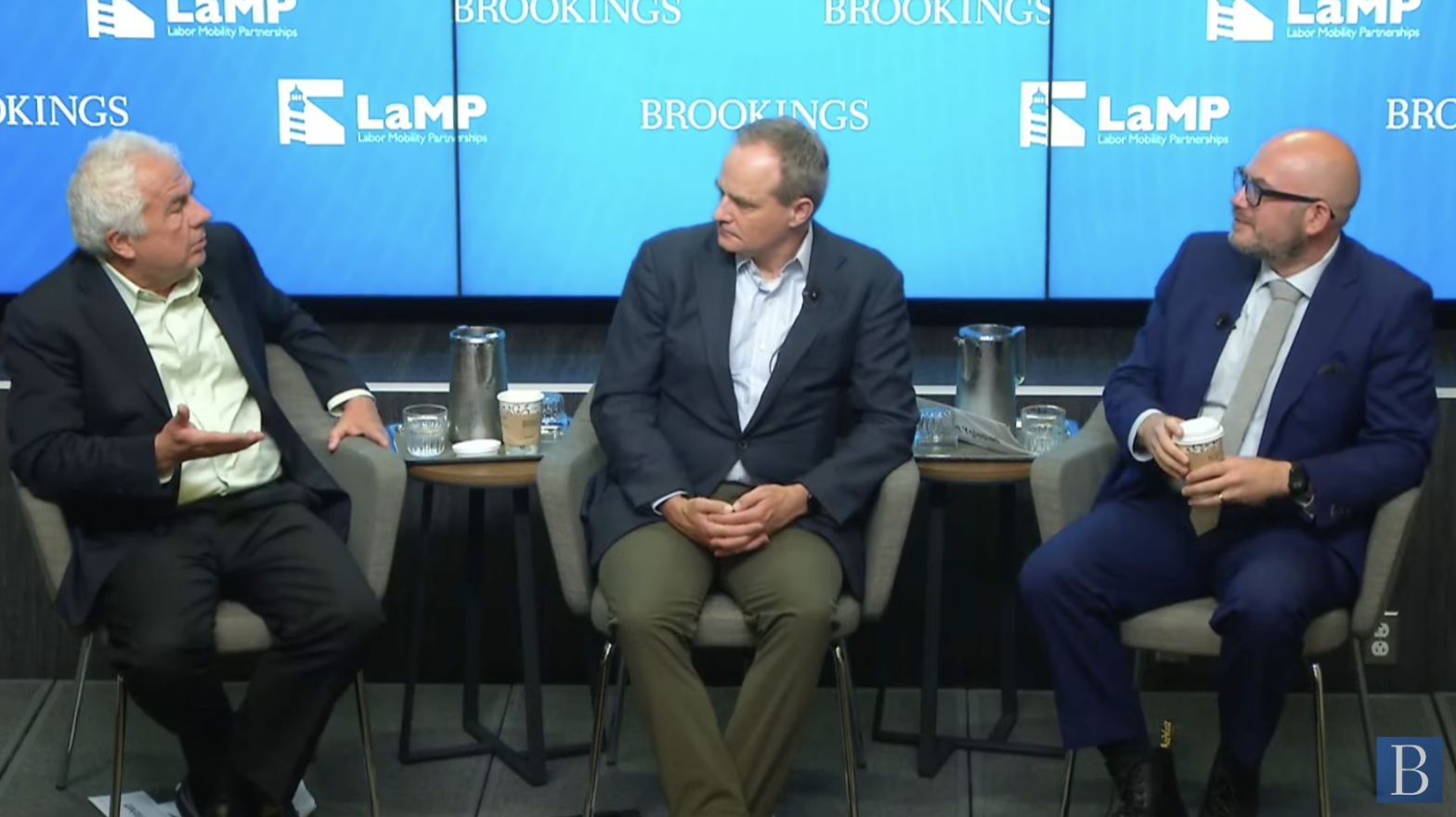People Over Robots? Experts Say Tech Doesn’t Equal Job Loss

WASHINGTON — The rapid advancement of artificial intelligence technology has raised concerns about its impact on the labor force. A recent Bipartisan Policy Center discussion contends that the issue may not be just in job function, but also at the intersection of technology and labor mobility with future policy decisions emphasizing the importance of prioritizing human labor and addressing the social and political implications of automation.
Simon Johnson, an economist at MIT and author of “Power and Progress,” argues that technology has, in most eras, been used by a class of elites to enrich themselves and consolidate their power. He was joined in discussion with Lant Pritchett, an expert on matters of labor mobility and development, who further contends that automation is a choice — not an inevitability — made based on labor markets distorted by restrictive immigration policies.
“We have the most scarce resources on the planet economizing on one of the most abundant resources on the planet,” Johnson said. “That, to an economist, is not economizing, that’s perverse.”
Instead, he and Pritchett stressed the need for a clear vision when it comes to the development and deployment of AI. They questioned who is driving AI and whether the current focus on job elimination should really be the focus of so much attention.
Pritchett agreed that technological determinism is a fallacy. Leveraging technology to innovate and improve processes doesn’t have to mean job loss. Instead, there can be a significant increase in the demand for labor and wages. But policies put in place need to foster an environment that encourages the creation of new job opportunities.
“This isn’t an economic problem, it’s a political and social problem,” Johnson said.
Historically, every technological transformation has involved the active participation of people and the influence of social contracts. While AI has the potential to automate certain tasks and eliminate jobs, he challenges the notion that technology inevitably leads to job displacement and instead suggests new opportunities will be less about repetition and require more human skills.
“The consequence of technology for the U.S. labor force over the last 20 years has not been a linear change,” Johnson said. “There are a large amount of jobs for which technology has not yet displaced those jobs because they involve non-routine physical work.”
Besides, he said, “The demographic facts of the future are already written. … We know demography with some certainty. There will be a lot more old people in the rich countries and a lot fewer working-age people in the rich countries.”
Given that the future of the labor force is already determined to some extent, it is expected that rich countries will face shortages of working-age individuals, while poorer countries will experience a surplus of working-age population. And this global scenario necessitates strategic thinking about how AI can be utilized to address labor shortages effectively and enhance productivity in a way that benefits both rich and poor countries.
Currently, there exist massive productivity differences between regions, emphasizing the fact that poverty is not necessarily a result of individuals but rather the circumstances of their geographic locations.
“The world does not have poor people. The world has people in poor places,” Pritchett said.
“If there’s one thing that’s bad for the world, it’s self-checkout in Kenya.”
The consequences of AI technology on the labor force in the U.S. and around the globe are complex, multifaceted and continuing to evolve. While there is concern about job displacement, Johnson and Pritchett believe in emphasizing the importance of prioritizing human labor and fostering a vision that encompasses equitable benefits for all.
“The idea that there is some sort of technological determinism … that’s an idea that we just don’t find appealing,” Johnson said.
By focusing on job creation, addressing global disparities and embracing the potential of AI to improve human welfare, Johnson and Pritchett believe that society may be able to better navigate the challenges and opportunities presented by this rapidly advancing technology.
“False necessity is the mother of dumb invention,” Pritchett said. “That is, I feel, the world’s largest distortion in the path of technology.”
Instead, the future of work could prioritize people over robots, ensuring that AI serves as a tool for progress rather than a cause of social and economic inequality.
You can reach us at [email protected] and follow us on Facebook and Twitter
























